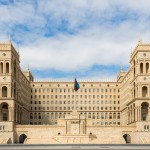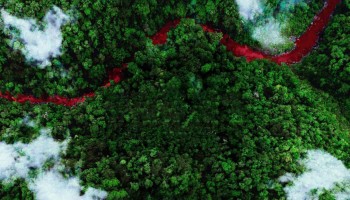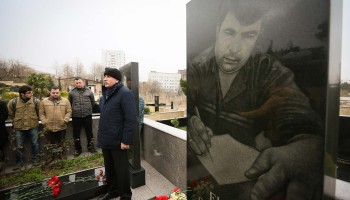Reporters Without Borders (RSF) ranks 180 countries on how freely journalists can operate. Countries are ranked from 1 to 180, with the lowest numbers indicating those countries with the most press freedom.
To determine the rankings, RSF considers how free the media is to report stories, whether reporters and editors censor themselves to avoid angering authorities, whether journalists are pressured or harassed by government, what kinds of laws protect the media and how (or if) they are enforced, whether it is clear to all who owns and operates media outlets, and whether the media represents the interests of the whole of society or just a privileged few.
The organization’s review of Ukraine described the current situation as the “worst period in Ukraine’s history since independence in 1991.” Following government crackdowns on protests and the ousting of former President Viktor Yanukovych in February 2014, President Petro Poroshenko’s new government has yet to fully implement media reforms.
Ukraine’s global ranking in press freedom, already dismal under the Yanukovych regime, dropped two spots this year, from 127 in 2014 to number 129 this year.
Specifically, RSF mentions the creation of an information ministry by the new Ukrainian government and a concern for its potential as a media control tool. The official purpose of the ministry, to counter Russian propaganda against Ukraine and promote freedom of information, does not appear to be inherently repressive.
However, the ministry has the power to decide what does and does not get shared with the public and monitors foreign and local media reports on government officials. According to RSF, this could lead to severe abuses of power, especially if the ministry decides that pertinent information is not ‘socially important’ enough to distribute. Ukrainian journalists and members of civil society, who were not consulted in the ministry’s creation, expressed concern about its potential.
The RSF report also lists journalists killed on the job in 2014: 69 deaths globally. There were reportedly six such deaths in Ukraine in 2014. Only Palestine and Syria had higher numbers, at seven and 15 deaths respectively.
Russia’s ranking dropped four points this year, as President Vladimir Putin’s government continues repressing any and all opposition or independent media sources. The RSF report describes the current media climate as “oppressive”, especially for anyone who chooses to question the status quo.
The parliament passed multiple laws in July 2014, banning advertising from private television networks, endangering hundreds of channels that rely on such revenue, and establishing penalties for “extremist” websites. While western media reported that Russian troops aided rebel forces in Ukraine, government-controlled media did not provide a full picture of the conflict to the public.
Azerbaijan received a ranking of 162, down from 160 in 2014, as government suppression of independent journalists continued this year. On Dec. 5, 2014, Radio Free Europe and OCCRP journalist Khadija Ismayilova was taken into custody and accused of causing a former colleague to attempt suicide, following her reports on the business interests of President Ilham Aliyev. The Radio Free Europe offices in Azerbaijan were raided and shut down in late December 2014 while the agency faced accusations of acting as a ‘foreign agent’.
The release of this report coincided with Putin’s announcement today of an imminent ceasefire in Ukraine on Feb.15, the British Broadcasting Company reports.






